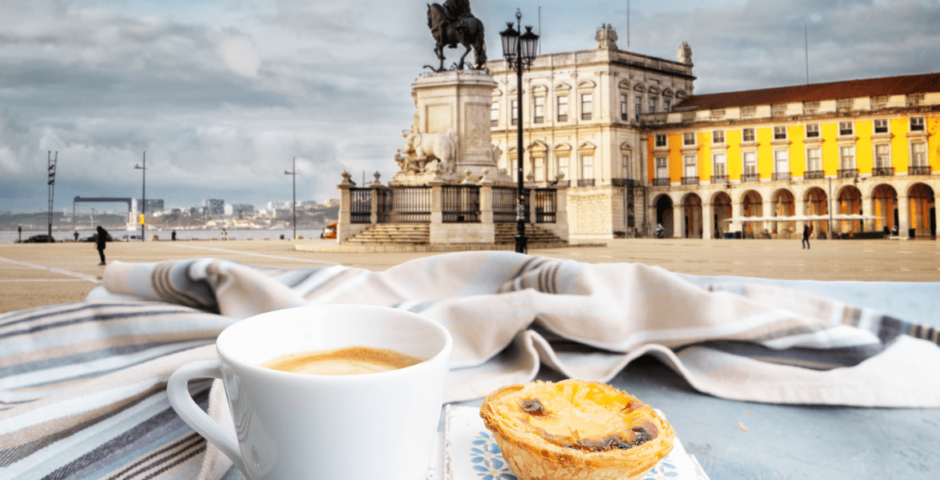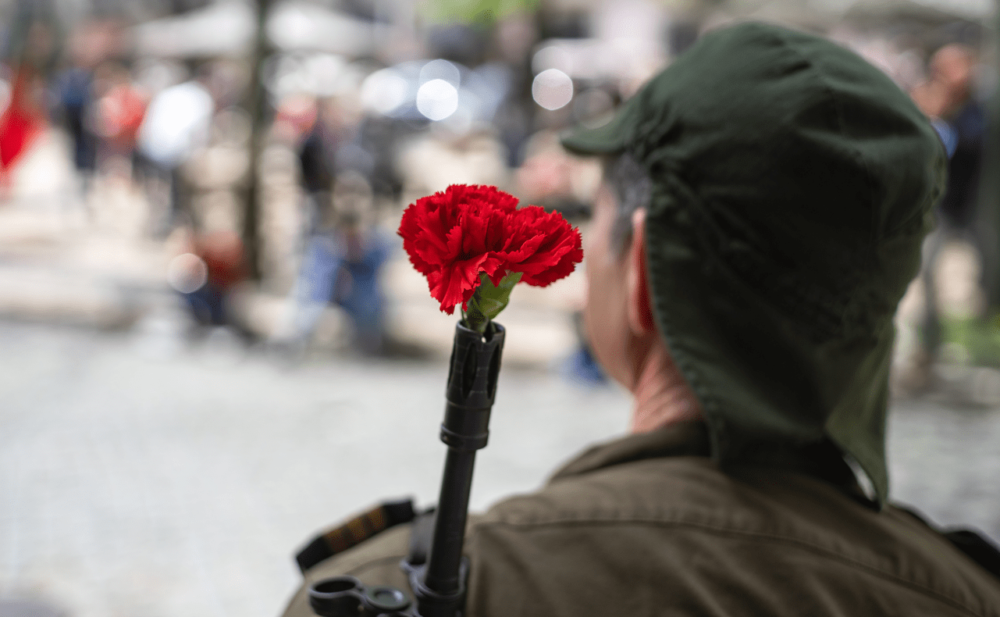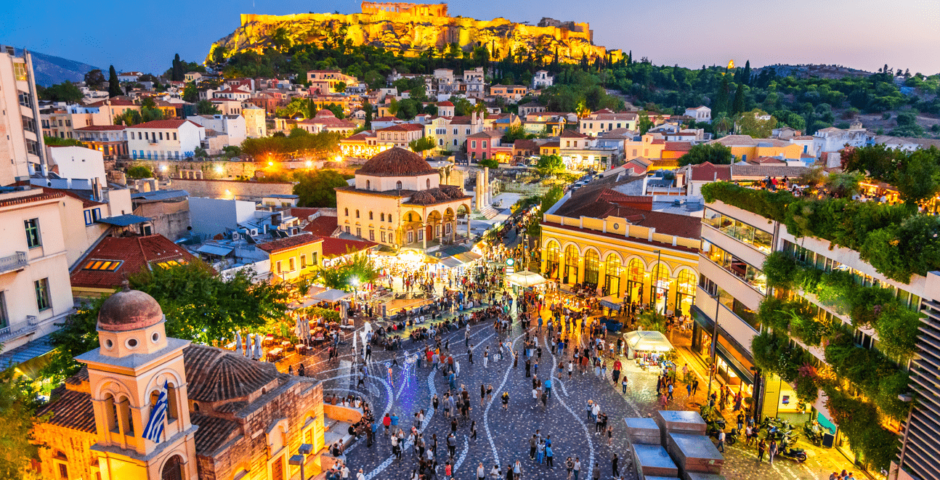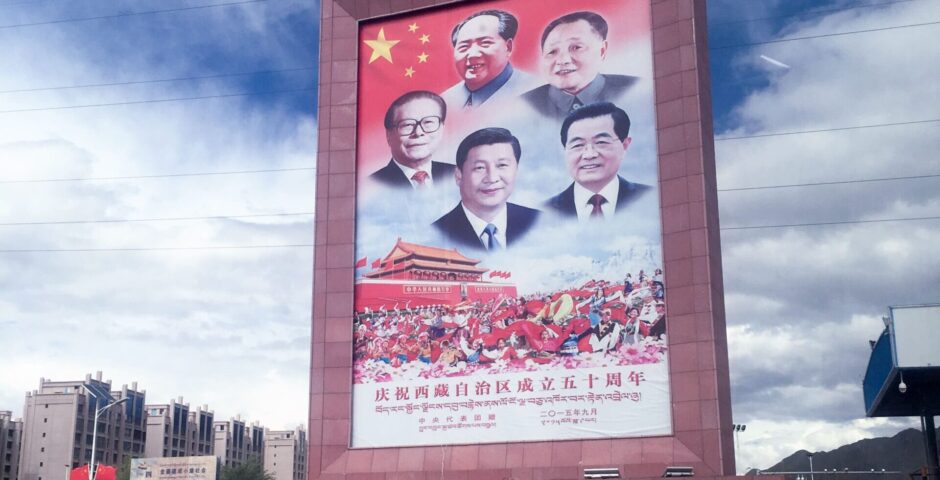Profile of EU member Portugal: Pioneer in the Field of Sustainability

Major national political changes for the European pioneer in sustainability.
Portugal is a Member State of the European Union (EU) in Southern Europe. The country was founded in 1143, making it one of the oldest nation-states in Europe. The Portuguese language is the official language in nine countries. The oldest bookstore in the world (1732), Livraria Bertrand, is located in the Portuguese capital, Lisbon. The country is also known for the pastel de nata: a pastry with custard. Portugal has a leading role in the field of sustainability; the country is a pioneer in renewable energy. Between 31 October and 6 November 2023, the entire country ran on renewable energy for 149 consecutive hours. There was even an energy surplus, which was exported to the neighbouring country of Spain.
2024 marks an important year for Portugal. It is fifty years after the Carnation Revolution that marked the restoration of Portuguese democracy. The national snap elections in March showed that the political landscape will change. While national politics now has to adapt to the election results, the country also has to prepare for the European Parliament (EP) elections in June. This country profile looks at the national political situation in Portugal, the country’s history with the EU, and its current position in the EU. It also looks back on previous elections for the EP and looks ahead to the upcoming elections in June.
Geography and demography
Portugal forms, together with Spain, the Iberian Peninsula. The capital is Lisbon. The Portuguese Cabo da Roca is the westernmost point of mainland Europe. Portugal’s administrative structure is decentralised. Portugal consists of eighteen distritos (districts) and two regiões autónomas (autonomous regions): the Azores archipelago and the island of Madeira. This level of government is divided into 309 concelhos (municipalities), which are in turn divided into 4261 freguesias (sub-municipalities), each with its own government.
The total area of Portugal is more than 90,000 square kilometres (more than two and a half times as much as the Netherlands). The nine islands of the Azores are of volcanic origin. The highest point in Portugal is the Pico at 2341 meters. The Pico is a volcano on the island of Pico in the Azores. The Tagus River divides the Portuguese mainland in two in terms of both landscape and climate. North of the Tagus, the country is mountainous, and cooler and rainy. South of the Tagus, the landscape is characterised by low, rolling plains, and it is drier and warmer. Portugal is also an important country for birds because it is on the migration route of many different bird species.
The population of Portugal is over ten million. The population density is around 110 inhabitants per square kilometre, but the population is not evenly distributed across the country. The population density is higher in the larger cities, such as Lisbon and Porto, and in the coastal areas.
National politics
Like Spain, Portugal was a dictatorship for a long time in the twentieth century. The political and financial situation worsened after the First World War. The army took power in 1926, and Portugal came under the leadership of a dictatorial regime: Ditadura Nacional. António de Oliveira Salazar became the Minister of Finance in this new regime in 1928 and became Prime Minister in 1932. In 1933, the new constitution was approved, establishing the Estado Novo. This regime was characterised by poverty. The rich were very rich and the poor very poor, infant mortality was high, and more than 30% of the population was illiterate. However, Salazar saw Portugal’s decline as the key to stability. At that time, Portugal was also waging difficult wars in its colonies, which further deteriorated the country’s financial situation. Many Portuguese citizens left for other European countries; many men tried to escape their military service in the colonies in Africa. In 1968, Salazar resigned for health reasons, and fellow party member Marcello Caetano became the new leader of the regime.
On 25 April 1974, the Movimento das Forças Armadas (Movement of Armed Forces) took power after a coup. They proclaimed a provisional government aimed at democratisation, decolonisation, and economic reform. It was a peaceful revolution called the ‘Carnation Revolution’ because the people gave red carnations (flowers) to the soldiers who placed these in their guns and pinned them on their uniforms. The Carnation Revolution ended the dictatorship in 1974. From that moment on, the country underwent a transition: Processo Revolucionário em Curso (Revolutionary Transition Process). The new constitution was approved in April 1976. In the parliamentary elections the same year, the Socialists won, and Mário Soares formed Portugal’s first democratically elected government after the dictatorship.

Soldier at a commemoration of the Carnation Revolution at the annual celebration of the Dia da Liberdade on 25 April.
At this moment, Portugal is a semi-parliamentary, representative, and democratic republic. Such a system combines elements of parliamentary and presidential systems. There is a popularly elected president with a fixed term of office, and a prime minister and a cabinet responsible for a legislative majority in parliament. António Costa is the current (outgoing) Prime Minister (head of government), and Marcelo Rebelo de Sousa is the President (the head of state). The cabinet and the parliament hold the legislative power. The parliament consists of one chamber: Assembleia de República (the Assembly of the Republic). The 230 members of parliament are elected every four years in parliamentary elections.
Portugal has a multi-party system dominated by the two largest parties: the social-democratic Partido Socialista (PS) and the centre-right, conservative-liberal Partido Social Democrata (PSD). In addition, there are smaller parties, and Portugal has recently seen the growth of right-wing populism, which, like in many other European countries, is gaining support. Portugal (like Spain) has often been considered as ‘immune’ to right-wing populism (the ‘Iberian exception’). The rise of the right-wing populist party Chega (meaning ‘Enough’) ended this exception. The party’s leader, André Ventura, was a member of the PSD until October 2018 and founded Chega in April 2019. He explicitly puts the interests of the Portuguese first and has been involved in controversial issues regarding racist statements. In a campaign when he ran for the position of mayor of Loures – then still for the PSD – he focused his criticism on the Roma community. According to him, the Roma community abuses the social security system and is often involved in crimes. Ventura was previously a sports reporter, and with this experience, he seems to know how to use the media to find political supporters.
Current political situation
This year, 2024, marks the fiftieth anniversary of the Carnation Revolution and the restoration of Portuguese democracy. Fifty years later, however, democracy in Portugal is under pressure; the turnout in elections is low, and the right-wing populist party is gaining ground.
Snap parliamentary elections took place in Portugal on 10 March 2024. In November, Prime Minister António Costa (PS) resigned after his official residence was searched in a major criminal investigation. Although he claims to be innocent, he resigned because he believes that the duties of the prime minister are incompatible with doubts about his integrity. This search was part of a major investigation into alleged corruption in green hydrogen and lithium projects.
Lithium is needed for rechargeable batteries, which are needed for, among other things, electric cars. The largest reserves of lithium in Europe have been found in the north of Portugal, which would make Europe a lot less dependent on other countries regarding the import of this raw material. In addition, there is alleged corruption at hydrogen factories running on sustainable energy in the Portuguese port of Sines. There are suspicions that Portuguese companies enjoyed a privileged position in these sustainable projects. Several officials are said to have been involved in putting Portuguese companies first, which made it difficult for companies from other (EU) countries to be granted permits.
Costa has been Portugal’s prime minister since 2015. In the 2022 elections, Costa’s PS unexpectedly won an absolute majority. This result was likely caused by voters who had previously voted for his governing partners but this time moved to Costa’s party. However, his new government was characterised by scandals in which several politicians resigned. In addition to the alleged corruption in lithium and hydrogen projects, the government was previously discredited due to a scandal with the TAP Air Portugal airline. The then Minister of Foreign Affairs, Alexandra Reis, had received a severance payment from TAP of approximately 500,000 euros. This led to great outrage, after which the Minister of Infrastructure and Housing Pedro Nuno Santos – under whose authority TAP was – resigned.
National elections 2024
Polls ahead of the national elections already predicted a major change in the Portuguese political landscape. Moreover, trust in national politics had decreased, partly due to the corruption in politics. One of the most important themes of the campaigns was the housing shortage. Other social themes played a role as well, such as the deteriorating education and health care system. Economic themes were also important, such as the consequences of inflation. Voter turnout in the elections was relatively high: 66.2%. This is an increase compared to the 2022 elections, where turnout was only 51.5%. This increase is probably also caused by Chega. Many voters did not feel heard in the last years, and Ventura easily responded to the concerns of this group of voters with Chega. Furthermore, Chega advocates a tough approach to corruption, something that also plays a role in current Portuguese politics.
Luís Montenegro participated in the elections for the first time as leader of the PSD. After the Prime Minister’s resignation, the PS also chose a new party leader: the aforementioned Pedro Nuno Santos. The election results confirmed the new political situation. This time, none of the parties achieved an absolute majority. The centre-right Democratic Alliance and the PS differed by only a few percentage points. The Aliança Democrática (AD) – an alliance of the PSD, CDS-PP, and PPM – won 79 seats, followed by the PS with 77 seats. The right-wing populist party Chega can be considered the winner of the elections. The number of seats increased from 12 to 48. This increase strengthens the party’s position in politics. Although Montenegro had ruled out a coalition with Chega in advance, in practice, he will need Chega’s support for his policy proposals. This means that Chega will influence the course of Portuguese politics. The PS has already indicated that it does not want to form a coalition with Montenegro. This makes a majority coalition impossible.
Portugal and the European Union
The Prime Minister of the first constitutional government after the end of the dictatorship, Mário Soares, submitted the request to join the European Economic Community (EEC) in March 1977. On 1 January 1986, Portugal joined the EEC – at the same time as Spain. The accession had a large impact on the Portuguese economy; the economy grew a lot. In particular, trade with Spain increased due to the removal of customs barriers. Also, more foreign investors became active in the country, and the Portuguese economy grew in other areas due to access to the EEC structural funds.
The general sentiment in Portugal towards the EU has always been positive since the accession. A large majority of the Portuguese supported EU membership, and over the years, the Portuguese have also been positive about further European integration. Portugal is taking an active role in the EU. Portuguese José Manuel Barroso served two terms as President of the European Commission (2004 – 2014). Outgoing Prime Minister Costa was considered a potential successor to Charles Michel as President of the European Council after the 2024 European elections. The European Socialists would like someone from their group to hold this position. However, it remains uncertain whether this position will still be open to Costa after his resignation related to the corruption investigation – even though he claims to be innocent.
Portugal plays an important role in the EU regarding green energy and access to important raw materials. The EU wants to become less dependent on China and Russia regarding energy and raw materials, and Portugal plays a key role in this. Two hydrogen plants and the exploitation of a lithium mine, which would start in 2026, would contribute to less dependence on other countries. However, due to the aforementioned corruption investigation, the projects that should contribute to this independence have been at a standstill for months. The plan to exploit the lithium mines also led to opposition from local citizens and nature conservationists, even though high subsidies had already been made available for the projects by Brussels.
Portugal’s status as a pioneer in green energy also became clear during the Portuguese Presidency of the Council of the European Union. Portugal had this presidency from January to June 2021, and the slogan was: “Time to deliver: for a fair, green and digital recovery”. During the presidency, they prioritised, among other things, the implementation of the Green Deal and the strengthening of the energy transition. They also paid attention to the sustainable use of the oceans, for which they organised a conference on the Azores.
However, now that Chega will leave an important mark on Portuguese politics, the question remains whether the emphasis on sustainability will continue. Chega insistently puts the Portuguese first and has a nationalist agenda. As a result, projects that are important for Europe, including hydrogen and lithium projects, will receive less priority. This would, of course, be very unfavourable for the EU.
Previous European Parliament elections
Turnout in Portugal’s European Parliament elections has been lower than the EU average in all previous elections. In 1987, when Portugal and Spain had just joined and were the only countries to vote for the European Parliament, turnout was the highest: 72.42%. Turnout in the last elections in 2019 was historically low: only 30.75% voted. Twenty-one seats were to be distributed, which remained the same after the redistribution of seats after Brexit. The table below shows that the PS and PSD dominate in Europe. In the 2019 elections, Chega was part of the Basta!-coalition. (which means, similarly to ‘Chega’, ‘Enough!’). However, the coalition did not win a seat and was dissolved shortly after the elections.
Elections results 2019
| National party | European group | Seats | Percentage |
| PS | S&D | 9 | 35,88% |
| PSD | EPP | 6 | 23,56% |
| B.E. | GUE/NGL | 2 | 10,56% |
| CDU (PCP + PEV) | GUE/NGL | 2 | 7,41% |
| CDS-PP | EPP | 1 | 6,65% |
| PAN | Greens/EFA | 1 | 5,46% |
| Aliança | Renew Europe | 0 | 2,00% |
| Other | Other | 0 | 8,48% |
A look ahead to the 2024 elections
Although Portugal had national elections in March, the country needs to prepare for the European elections immediately after. Again, 21 seats will be distributed in Portugal in the 2024 European Parliament elections.
The Eurobarometer six months before the elections, shows that the Portuguese see clear priorities for the European Parliament. These priorities are: ‘support for the economy and the creation of new jobs’, ‘the fight against poverty and social exclusion’, and ‘public health’. This is very similar to the themes that dominated the national elections in March. When asked how likely they would be to vote – if the election were to take place next week – 57% answered ‘very likely’. However, the turnout rate in Portugal has only twice been above 50% (in 1987 and 1989). The last five European Parliament elections have shown a downward trend in turnout every election, with the lowest turnout in 2019 (30.75%).
Elections in Portugal take place on a Sunday. The EP elections are, therefore, on 9 June. This date can also contribute to an even lower turnout. 10 June is the Dia de Portugal, the Camões e das Comunidades Portuguesas (Day of Portugal, Camões, and Portuguese Communities). On this day, Portuguese identity, culture, and history are celebrated. 9 June will be in a long weekend, which may mean that Portuguese people will stay away from the polling stations. The Portuguese government tried to propose a different date in the EU, but the proposed dates (6–9 June) were kept.
Chega’s popularity is not positive for Portugal’s status in the EU. Chega is a Eurosceptic party and wants to join the European group Identity and Democracy. Although Chega did not win a seat in the EP in 2019, this is likely to change in the upcoming elections. The Portuguese socialists will not be able to dwell on their great national loss for long and will have to quickly come up with a new strategy for the European elections. New in these European elections is the pan-European party Volt Portugal. Some smaller parties have already announced their party leaders (and entire lists). The lists of the larger parties are expected soon now that the national elections are over.
National politics in Portugal will now first react to the election results; a government must be formed. The question remains whether the generally less popular elections for the European Parliament can achieve a comparable high turnout. In any case, Portugal will have to prepare for the second election in a short time. The parties have little time to recover from the national elections, they immediately have to campaign again, with which they are expected to start very soon.
Hanna Krijgsman van Spangenberg holds a master’s degree in Political Science from Vrije Universiteit Amsterdam and a bachelor’s degree in European Studies from the University of Amsterdam with a major in European history.
Images: Shutterstock




